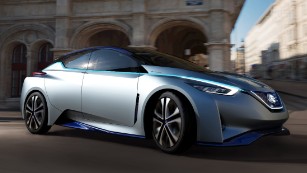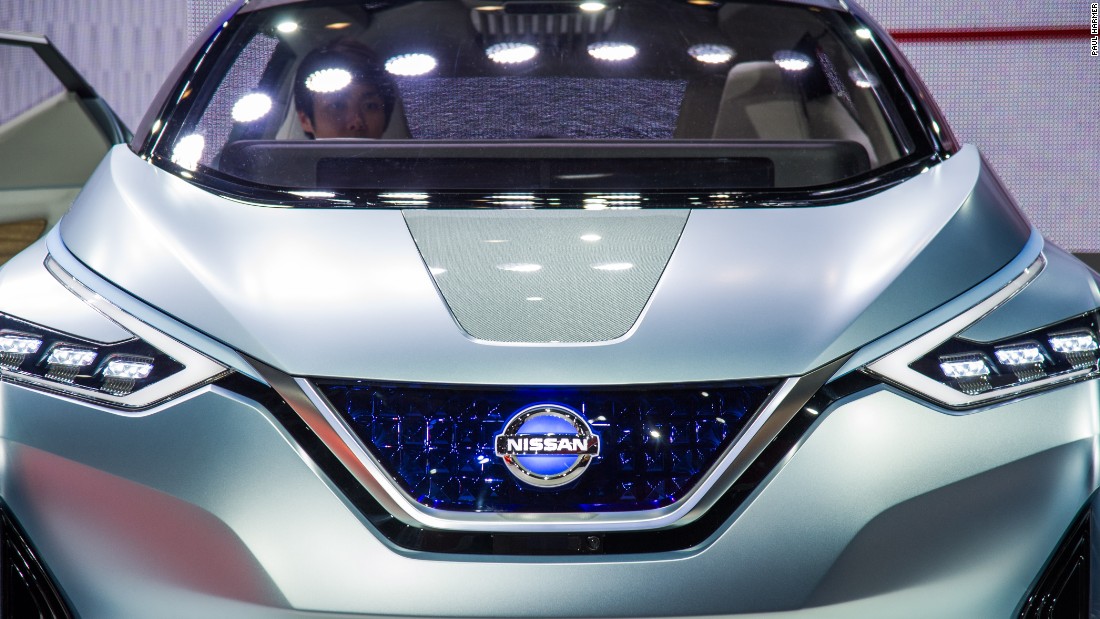Nissan IDS Concept: Japan's affordable rival to the Tesla Model S?
Autonomous cars are the latest buzz topic in the automobile industry. Nissan, which is showing off its own advances in the technology with the IDS Concept, is one of the big stars at this week's Tokyo Motor Show.
A sharply-styled four-seat hatchback, the IDS Concept teases the next decade of progress, with technology that will eventually see us entrusting a car with more than just simple parking or cruise control.
The IDS can also operate as a normal vehicle, but comes with a useful safety net as it can monitor progress and its surroundings. This means it is able to takeover and make emergency maneuvers should the driver be incapacitated.
Flick a switch, though, and the Nissan moves into a piloted mode. It takes control of driving and alters its cabin layout, as if to prep you for ultimate relaxation.
The steering wheel moves back into the instrument panel, and a flat screen for entertainment extends out from it. The seats can swivel to face each other, making it easier for occupants to have a conversation.

Nissan claims the IDS weighs less than most electric cars, helping to extend its range on a single charge.
Most intriguing perhaps, is that the IDS leads the trend for autonomous cars that don't just drive us from A to B, but also mimics the driving style of their owners.
This means the IDS will corner, accelerate and brake, just as if you were driving it. It mixes your 'character' with dozens of inputs about its surroundings and a constant conversation with other connected vehicles around it.
Nissan is promising that the first elements of this suite of technology, dubbed 'Intelligent Drive,' will appear in cars over the next 12 months. The car will include the ability to follow lines and navigate heavy traffic, allowing the driver to avoid stressful situations.
This initial level of technology isn't unique; in fact, it's a clear step behind the AutoPilot system currently in public beta in Tesla's Model S. But Nissan's determination to roll it out to mainstream product lines will democratize the technology in a way that Elon Musk's creation cannot -- by offering it in vehicles that cost a fraction of the Model S' price.
Assuming that it would be a bit more expensive than the existing Nissan Leaf, the recommended retail price could be around $40,000.
If anything, the IDS' more immediate influence may not be over the way we drive, but over the styling and technological direction of Nissan's next mainstream electric car.
If rumors around the halls of Tokyo Big Sight are to be believed, its slick aesthetic is going to be transferred to the next generation of the Leaf, due in 2017.
Beyond that, the IDS' blend of low-slung styling (for a smaller frontal area and lower wind resistance), light construction and a 60kWh battery allows it to drive longer distances. These advances could bring tangible real-world gains for consumers long before 2020.
News Courtesy: www.cnn.com











